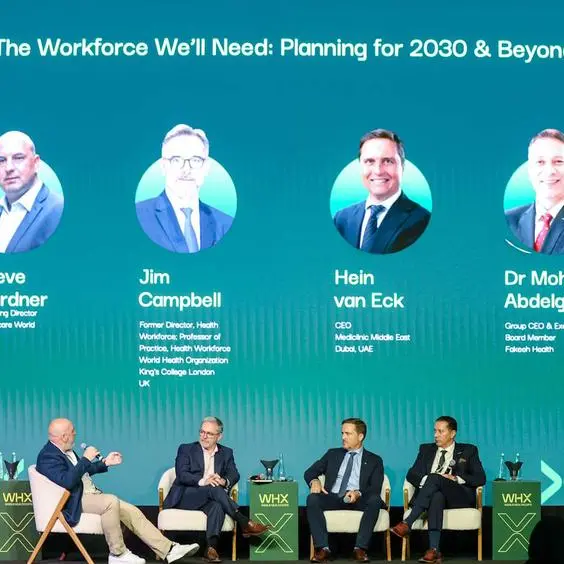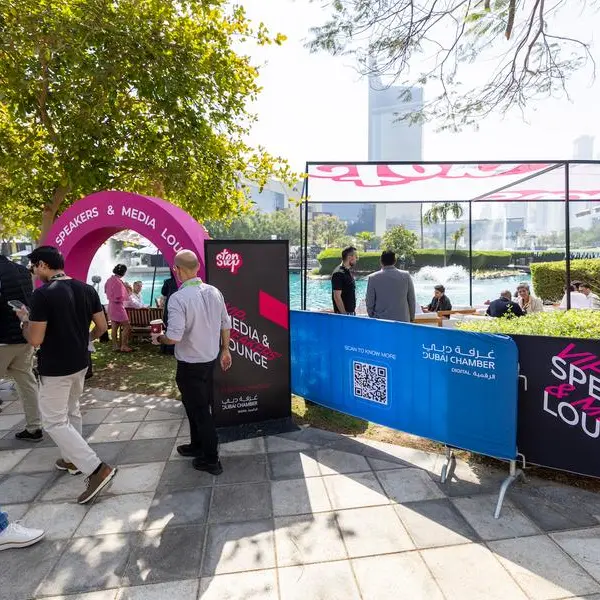The first charitable, effective system in Egypt for collecting, sorting, and distributing medicine to low-income families, managed to assist 400 beneficiers in 2014 on monthly basis
Cairo, Egypt, March 31st 2015
Boehringer Ingelheim and Ashoka Arab World's Making More Health initiative celebrated today Waleed Shawky, founder of "Medicine For All" and the second "Making More Health" Fellow in the Arab region for the great achievements during the past years. Waleed Shawky, through the initiative "Medicine for All", partnered with 30 NGO's across Egypt and succeeded to significantly increase medicine donations during the past 8 years. The increased partnership with NGO's leveraged the initiative to as many as 400 beneficiaries in Egypt, on a monthly basis throughout 2014 and to date.
The collaboration between Boehringer Ingelheim and Ashoka Arab World's Making More Health initiative provided Waleed and his social community campaign "Medicine for All" with greater access, reach, and spread to individuals in all of Egypt, especially places that don't have enough healthcare centers like El Fayoum and Beni Seuf. Waleed's primary goal for launching the initiative was to create a system that fills the gap between the great need to access medicine and the huge amount of waste produced by various actors. Being awarded as "Making More Health" Fellow, Waleed was able to get support to sustain his initiative and served more patients requiring medicine all around Egypt specifically in rural areas and Upper Egypt.
The Egyptian annual medicine wastes are estimated to be 1 billion Egyptian Pounds. Due to the trending consuming behavior, consumers usually buy more than their needs of medicine, ending up not using it before the expiration date. In addition, at most cases consumers do not have to use all medicine as per the doctors' prescriptions. Not to mention that most of medications in Egypt are over the counter, without the need of any prescription. Witnessing this problem first hand as a pharmacist, Waleed Shawky, Making More Health Fellow, built a community-based system to collect, sort and distribute medicine to low-income families in Egypt using medicine wasted by affluent households, pharmacies and pharmaceutical companies.
By bringing their respective skills together, Boehringer Ingelheim aims to promote new ways of "Making More Health," which is why Waleed Shawky was chosen as a fellow. Waleed's initiative will heavily impact the Egyptian community. With the support and encouragement from 'MMH' many burdened and less fortunate Egyptians will get the help they need. Waleed's initiative reflected BI's objectives by solving an urgent problem in Egypt and it is also a sustainable project that engages the community to help one another. Boehringer Ingelheim and Ashoka are supporting Waleed's to spread his initiative and find solutions to the challenges he is facing such as proper storage area and creating database of the beneficiers Waleed is also trying to also create educational hubs that only require a set-cost of a computer and database upon launch. This is where he receives the support and access being an Ashoka fellow.
To build up his work, Waleed is aiming on two tracks: establishing university pharmacies and working on supporting the health insurance policies to help ease the process of obtaining medication. He is doing the latter by building coalitions with hospitalsand companies. He has established quality-control hubs in Egypt's two main universities, Cairo University and Ain Shams University, which receive the largest number of pharmaceutical students from throughout the country. To achieve professional-level quality control, the collected excess drugs are screened, and filtered by student volunteers from the Faculty of Pharmacy whom Waleed trains during their clinical university years.
Waleed relies on a steady flow of specialized volunteers and a self-sufficient, zero waste strategy with no exchange of money or dependence on charity or external support. However, he established purposeful partnerships with NGOs who have direct access and connections to needy communities in their areas, who can benefit from this service. In addition to NGOs, Waleed targets all relevant stakeholders which include the sources of waste (households, pharmaceutical companies, and pharmacies) as well as pharmacy students, and needy households. Waleed has plans of spreading to all of Egypt with hopes of reaching the biggest number of people in need.
Mohamed El Sahhar, Country Head, Boehringer Ingelheim, Egypt said, "We are proud to have Waleed Shawky in our list of impactful fellows under the "Making More Health" initiative. We believe that "Medicine For All" has the most promising solution to challenging health problems in Egypt. We are also pleased with the partnership and support of Ashoka Arab World in the region. Medicine waste is a crucial issue in a large country like Egypt which suffers from a large percentage of Low income, and where affordability of expensive medication is a cause of concern. As a committed healthcare organization, Boehringer Ingelheim totally back to support the project which is helping us gains credibility as an effective health service in Egypt."
According to Waleed Shawky, Founder of 'Medicine for All' Initiative and Social Entrepreneur, "Today we celebrate the years of hard work since we started this initiative, we have managed to increase the number of beneficiaries from 20 to 400 on monthly basis and the number of volunteers reached 200. Not only that, the number of convoys reached 8 on monthly basis aiming at reaching targeted beneficiaries at rural areas. With the support of MMH initiative, we are looking forward for more expansion and direct increase our efforts with the chronic disease patients."
Supporting the initiative, Dr Iman Bibars, Regional Director of Ashoka Arab World and Vice President of Ashoka Global, said, "At a time of increased economic pressures and lack of access to medicine, Waleed's future plans will cover a portion of this great need in society and re-channel wasted medicine in 10 new educational pharmacies, which he plans to establish in pharmacy universities across the country (he is currently working in five). Waleed will continue to provide screened and filtered medicine to the needy in coordination with civil society organizations that have access to communities in need."
Boehringer Ingelheim also supports Making More Health by engaging its 47,000 employees worldwide in various capacities to help spread an understanding and appreciation of social entrepreneurship and health innovation within their own communities.
Making More Health (MMH) is Boehringer Ingelheim and Ashoka Arab World's global initiative to find pioneering ways to bring more health to individuals, families and communities around the world with an ambition to deliver new health care models - prevention, diagnosis and treatment - to individuals and society.
-End-
About Making More Health
Making More Health (MMH) is a long-term initiative, driven by Boehringer Ingelheim, to identify new and better ways of improving health globally. Since MMH started in 2010, a huge number of MMH initiatives have been launched by sourcing social innovation to provide more health in the future.
Making More Health is a Boehringer Ingelheim initiative on a global level, launched in 2010. It builds on the track record of both Ashoka and Boehringer Ingelheim as leading and innovative organisations. By bringing their respective skills together, they aim to promote new ways of "Making More Health."
"Making More Health" is also the description of what Ashoka and Boehringer Ingelheim will work on together to bring to the world.
In this context, "more health" means contributing to the health of individuals, the community, and the environment.
The success of our partnership depends on the know-how and availability of people who share our concerns and values. They include the employees of Boehringer Ingelheim and Ashoka's Fellows.
About Boehringer Ingelheim
The Boehringer Ingelheim group is one of the world's 20 leading pharmaceutical companies. Headquartered in Ingelheim, Germany, it operates globally with 140 affiliates and more than 46,000 employees.
Since it was founded in 1885, the family-owned company has been committed to researching, developing, manufacturing and marketing novel medications of high therapeutic value for human and veterinary medicine.
As a central element of its culture, Boehringer Ingelheim pledges to act with social responsibility. Involvement in social projects, caring for employees and their families, and providing equal opportunities for all employees form the foundation of the global operations. Mutual cooperation and respect, as well as environmental protection and sustainability are intrinsic factors in all of Boehringer Ingelheim's endeavors.
In 2012, Boehringer Ingelheim achieved net sales of about 14.7 billion euro. R&D expenditure in the business area Prescription Medicines corresponds to 22.5% of its net sales.
About Ashoka
Ashoka is the global community of the world's leading social entrepreneurs -- called Ashoka Fellows. Ashoka sources the best social innovations, mobilizes thousands of people to create change, and enables businesses, the media, policy makers and "Changemakers" to work together to solve some of the world's most pressing social challenges.
Ashoka Arab World (AAW) is the regional branch of Ashoka: Innovators for the Public. Launched in 2003, AAW has identified and elected more than 80 of the leading social entrepreneurs in 9 Arab countries to become Ashoka Fellows. These social entrepreneurs work in various sectors, making a difference for the benefit of the environment, and in the housing, health, children and youth, civic engagement, gender parity, education, income generation and other sectors.
About "Medicine for All"
'Medicine for All', is the first organized, non-profit model addressing the issue of medicine waste, while planning for long-term public health policy reform in Egypt. The initiative provides the basic medication to low income families in Egypt. This is done by collecting medicine wasted by affluent households, pharmacies, and pharmaceutical companies. Medications are distributed to local NGOs that deliver them to those who need it and those who have a recent prescription. It is also distributed to caravans, which are operated by other health organizations that deliver it to people living in remote and urban areas. To date, the project has benefited more than 1,000 patients per month, saving patients an estimated 25,000 EGP since 2010. The 25K per month is the equivalent in money to the amount of drugs that are rescued.
For any further information, please contact -
Boehringer Ingelheim
Sara Shamel
Communication Manager - NEMEA
Email: sara.shamel@boehringer-ingelheim.com
Memac Ogilvy & Mather Egypt
Tarek Lasheen and Eva Nabil
E-Mail: tarek.lasheen@ogilvy.com
Eva.nabil@ogilvy.com
© Press Release 2015


















